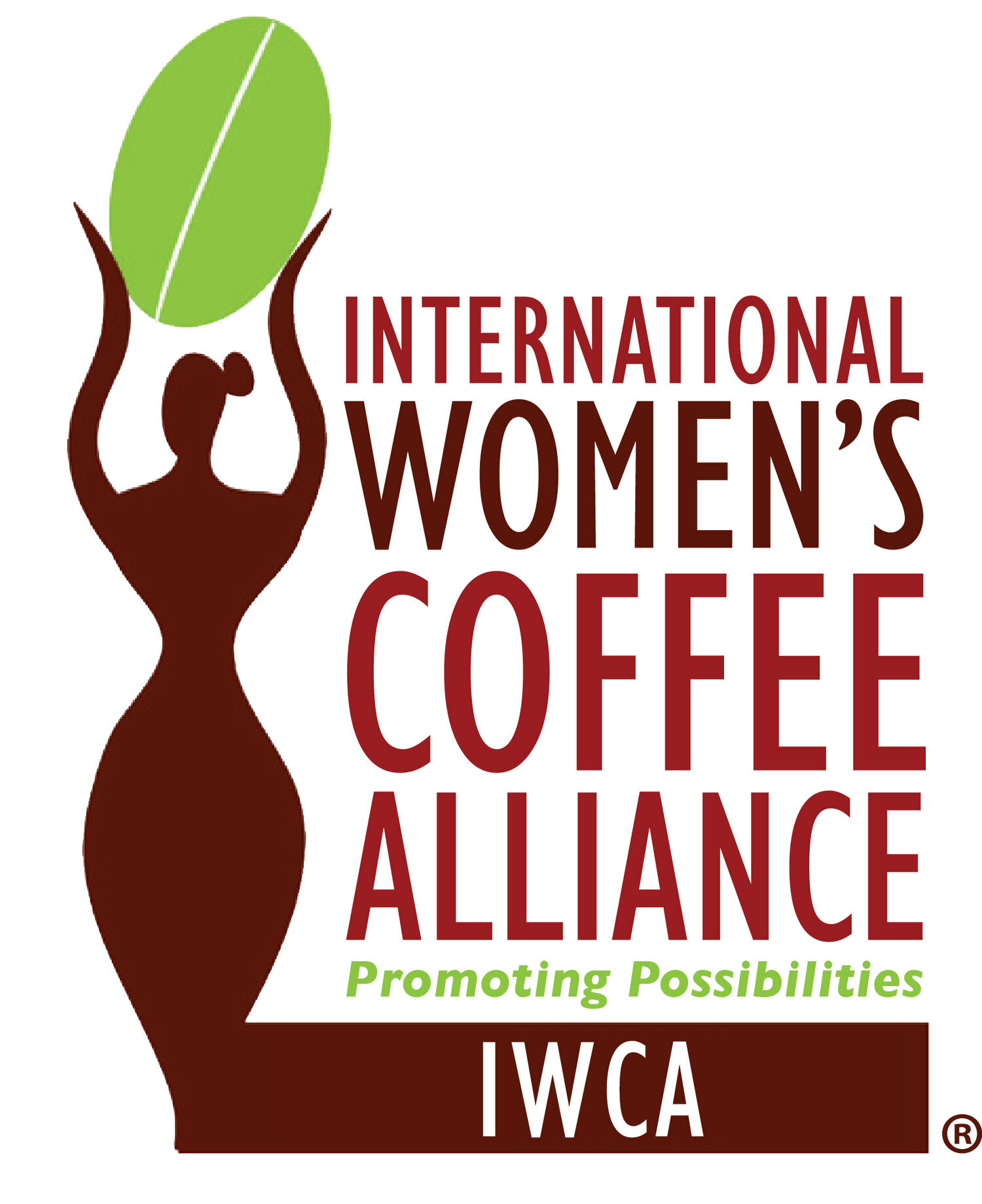How the IWCA Empowers Women
Alika Magas | March 31, 2021
If you’ve spent any amount of time either reading about coffee activism or wandering around the Ampersand Coffee website, you’ve no doubt come across an organization by the name of the International Women’s Coffee Alliance—or the IWCA for short. The IWCA is an expansive, ambitious organization. It uses the coffee industry to empower women at large, starting with those who grow, harvest, and produce the coffee beans. The alliance has an exceptionally unique structure: while most outreach organizations identify the problem from afar and concoct their solution in board rooms, the IWCA takes the opposite approach. They are comprised of individual chapters, started by the women coffee farmers in each region. These chapters then identify the issues they’d like to improve and the IWCA enables them with the resources necessary for achieving the chapter’s mission.
The IWCA official Logo.
Now, keep in mind that these “resources” aren’t the first thing you might expect—that is, IWCA’s focus isn’t to provide direct funding to chapters. Instead, they go through a more unique approach. IWCA creates a medium through which all the chapters can talk to each other and tap into the knowledge of the women’s coffee alliance at large, something that would be difficult to do without the IWCA once you consider the hurdles created by language barriers and access to means of global communication. The coffee alliance also gives the chapters access to education—whether that’s on finances, land ownership law, or coffee cultivation—should they express the desire to learn more about such concepts. What’s even cooler is how the IWCA address the issue of monetary funding. Their approach is even more unique and, ultimately, has a greater impact than the usual means of direct donation. Through the IWCA, the coffee farms involved with the local chapters are listed as supplying farms through the coffee alliance, channeling business and lasting revenue to each chapter. Simply put, the IWCA acts as an enabler. The guiding belief being that the people best equipped to offer and execute solutions are those experiencing the problem first hand. The farmers know what they need, the IWCA simply wants to support each chapter’s objectives through empowering means.
For example: in coffee producing countries, governments often invest large sums of money into agriculture. Some of this money goes to funding the education of coffee cultivators—most of whom are men. Between the years 2004 and 2009, 40 coffee educational events were held in Africa and, during the five year span, only 15% of the attendees were women. Even worse, many women-owned coffee farms lack access to roasting equipment which puts them at a disadvantage as they are not able to roast and evaluate the quality of their own product. This causes impurities to remain undetected, reducing the farm’s business and, as a result, women’s income. The sad part is that when women have access to the tools required to refine their product, they often produce higher quality coffee than beans grown in a farm owned by men; lack of roasting equipment not only reduces business, it also keeps women from achieving remarkable potential success.
In response to these problems presented by the IWCA chapters, the alliance held educational webinars, offered formal training, and even enabled chapters to provide themselves equipment to increase roasting capacity among women. And, because of the inseparable tie between education and the government, the IWCA also encourages chapters to register as legal, independently governed entities which permits them to interact directly with the local government.
Another issue identified by the body of IWCA chapters is the challenge women face in relation to property rights. Now, this is a complex issue as the challenges presented to women’s land ownership vary across cultures and countries. In Mexico, even if a women is able to buy property herself, the deed is more often than not registered to the husband. Why? The current culture credits the transaction to the head of household, regardless of the purchaser’s identity. And, even in joint cases, the secondary owner is most often listed as the son. But, obtaining land ownership can be a radical defense against violence and femicide. In Uganda, for example, widowed women without the deeds to their deceased husband’s land often endure ritual rape by their male kin in an attempt to claim ownership over the remaining estate. To combat this, the IWCA is able to provide means to educate the women about their lawful rights concerning property ownership, should the chapters express the need. Empowering women with the knowledge usually denied to them not only protects them but can also have ripple effects on the community as a whole.
The IWCA Asian Leadership Summit on November 18, 2018 during the Hainan Coffee Expo in Haikou, Hainan, China
Source: https://www.womenincoffee.org/chapter-formation
See, there is an undeniable link between a community’s health and the prevalent role of women in the economy. Goals set by women who are economically empowered through the coffee industry have included achieving electricity, constructing bathrooms, and preparing for the growing impact of climate change. And, on top of that, Women invest more of their income in their families and community than men do. By giving women leadership power and land rights to help protect them, communities at large are strengthened. After all, an entirely women owned and operated coffee farm in Rwanda is now responsible for the employment of over 4,600 women—both empowering and protecting them at the same time.
The challenges that face women are endless but so are the solutions. Because of the wide variety of needs, and the complex combination of resources needed to fulfill them, an alliance such as the IWCA is essential to empower the women executing change in their countries and communities. Without this interconnected alliance, the challenges facing women would stack higher and higher with each passing day. But, by bringing together this network through conversations, collaboration, and connections, the IWCA helps to provide a basis for change.


